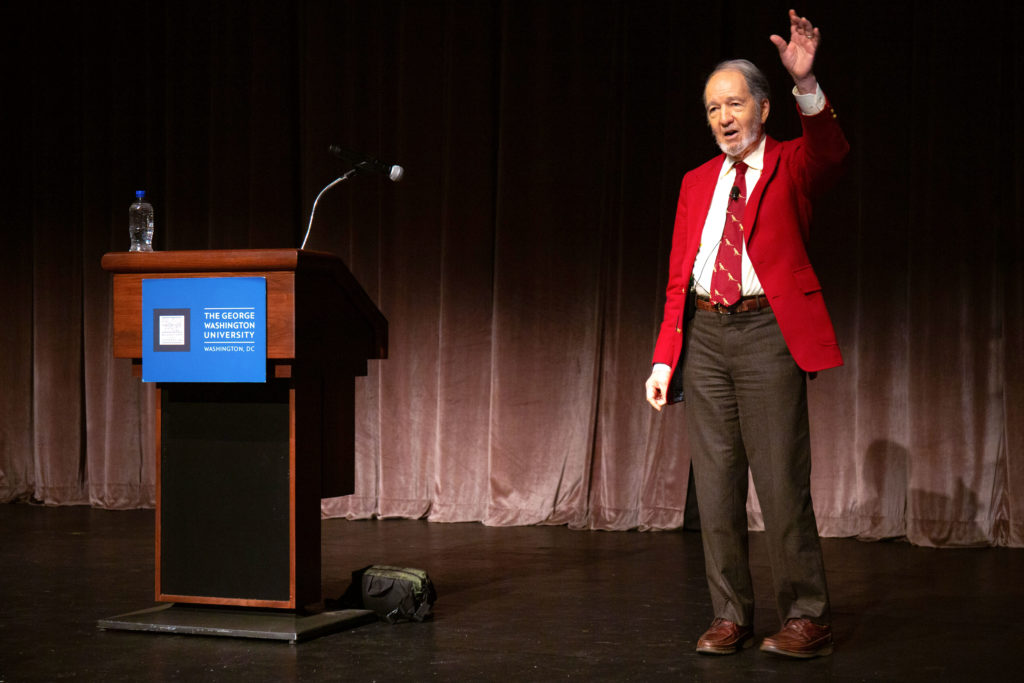A Pulitzer Prize-winning author discussed his new book about six different countries’ approaches to dealing with their own historical crises at the Marvin Center Friday.
Jared Diamond, a professor of geography at the University of California, Los Angeles, discussed his new nonfiction book titled “Upheaval” – which is about why some countries are able to overcome Earth-shattering events while others are plunged into chaos. More than 400 people attended the event, which was hosted by independent bookstore chain Politics and Prose.
Diamond’s 1997 book “Guns, Germs and Steel: The Fates of Human Societies,” which discussed how the successfulness of a society or nation is dependent on its geography, was awarded the Pulitzer Prize in 1998.
In case you missed the event, here are some key takeaways:
Solving a crisis
Diamond said his book compares six countries to figure out what types of steps national leaders take to solve an upheaval. He said the first steps include acknowledging a crisis exists and accepting responsibility for the crisis.
“Nations may accept responsibility for their problems or they deny responsibility and say the problems of the United States are the fault of Canada and Mexico and China, which is a guaranteed way not to solve the problem,” Diamond said.
He added that a country’s population should attempt to address a national crisis by examining how other countries faced similar problems in the past while being mindful of each nation’s individual circumstances.
“Self-appraisal is essential,” he said. “You have to be clear about what is working for you and what is not working for you.”
America in crisis
Diamond said political partisanship in the United States threatens the country’s form of government.
“Democracy is a great form of government but democracy involves compromise and if there is not compromise, then there is not a democracy,” he said.
Diamond added that low voter turnout in the United States is one contributing factor to the decline of the United States’ democratic government. Fifty-eight percent of eligible voters voted in the 2016 presidential election.
“If or when democracy ends in the United States, it is going to be by the continuation of the things that are going on now – the restriction of voters’ abilities to register to vote, and the apathy of so many voters not voting and the breakdown of compromise,” he said.
Diamond said most U.S. citizens do not acknowledge their country is in a crisis, which means problems like partisanship are not being addressed. As a result, there is a “significant” chance that the United States will no longer be a democracy within the next decade, he said.
Upheavals around the world
Diamond said the four main problems facing the world are a risk of nuclear war, climate change, unsustainable management of the world’s resources and economic inequality. He said increased globalization means higher-income and lower-income countries struggle to coexist.
“In this globalized world, poor countries have a way of consciously or unconsciously sharing their dissatisfaction with rich countries, unconsciously through the spread of diseases such as malaria,” Diamond said. “Then there’s the support for terrorists.”
But he added that progress is still being made worldwide, referencing the eradication of smallpox and the Montreal Protocol, a 1987 international agreement that helped preserve the ozone layer.
“All I can say is that it will be settled in the next 30 years,” Diamond said. “Before we run out of essential resources like topsoil and so on and it will be too late.”





